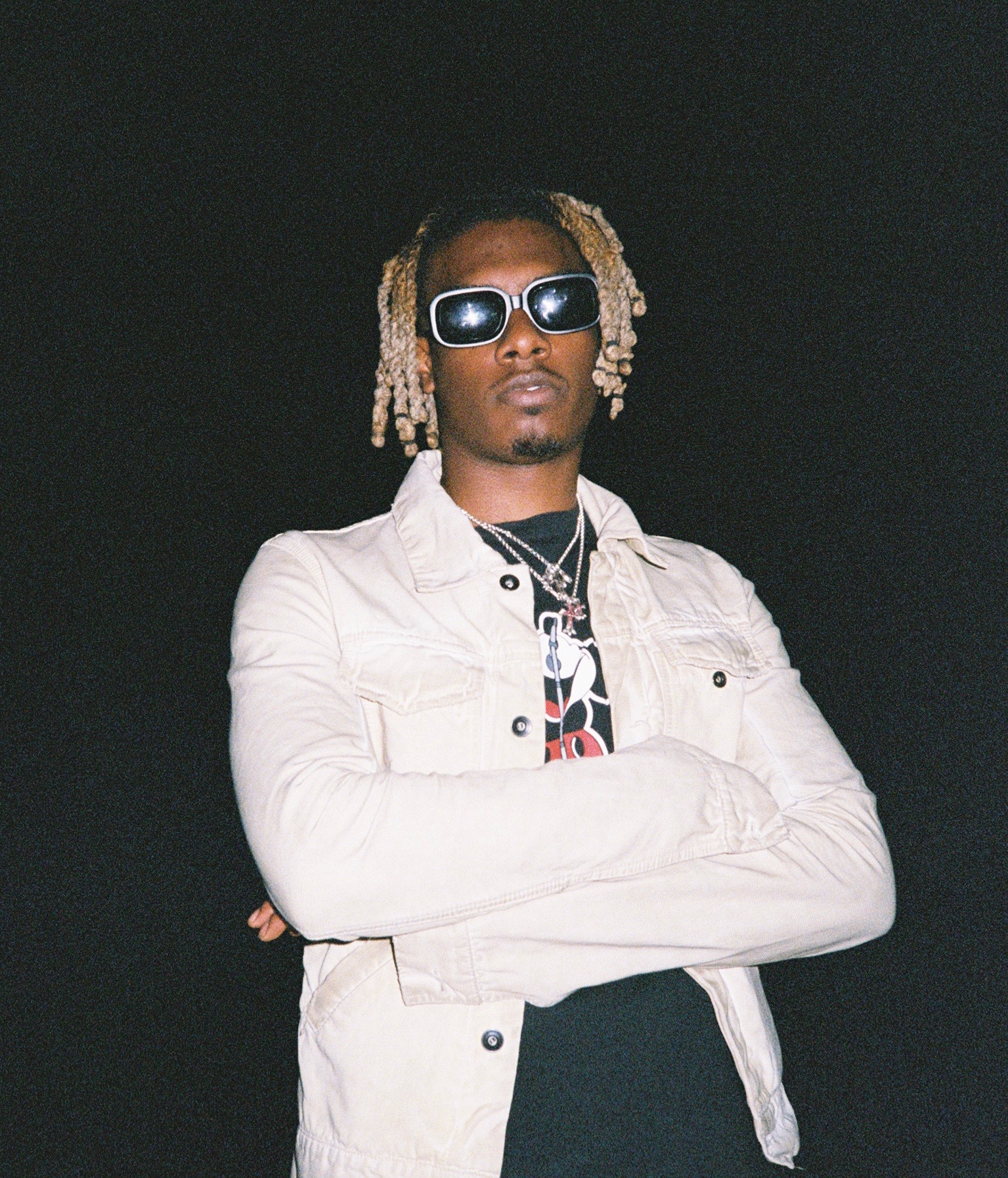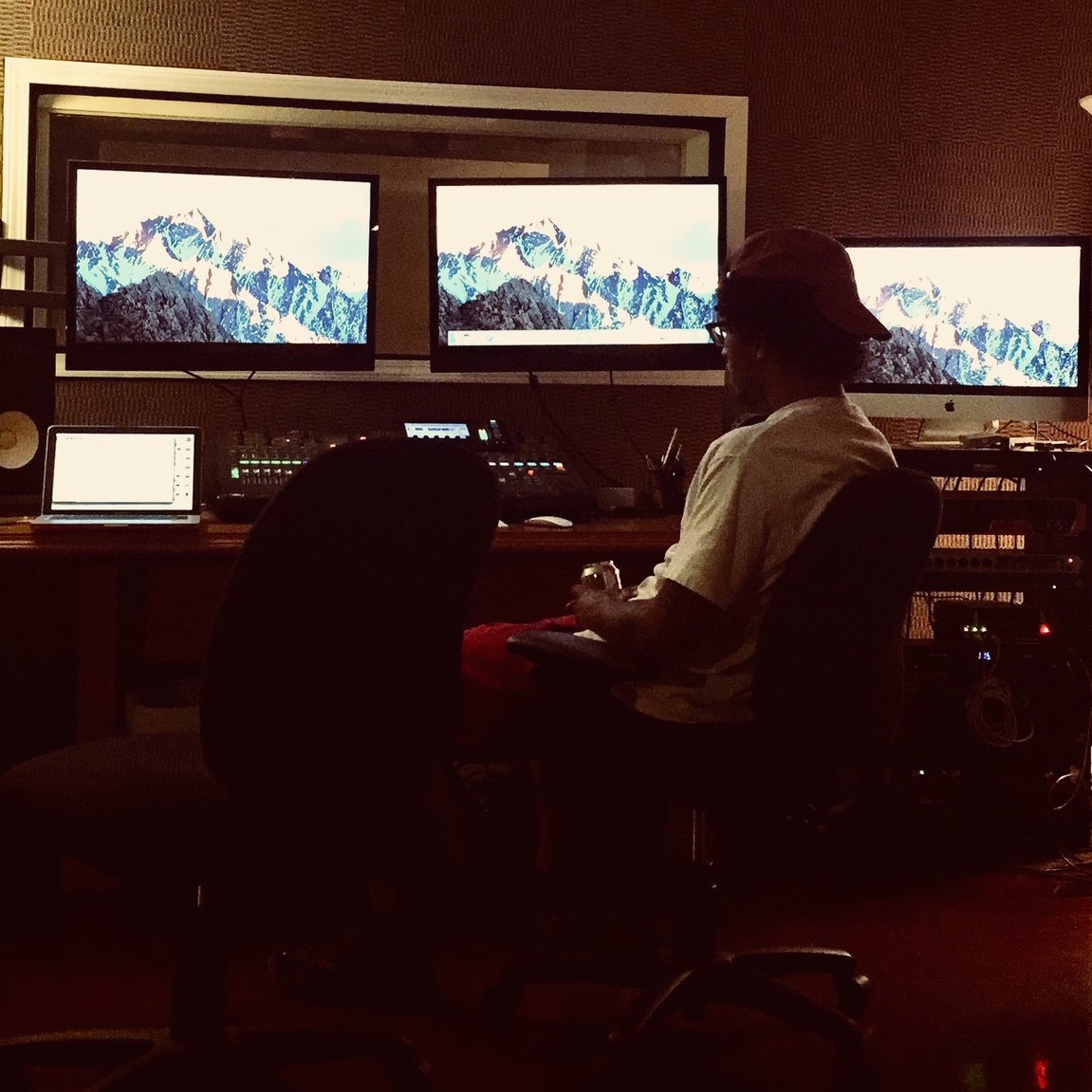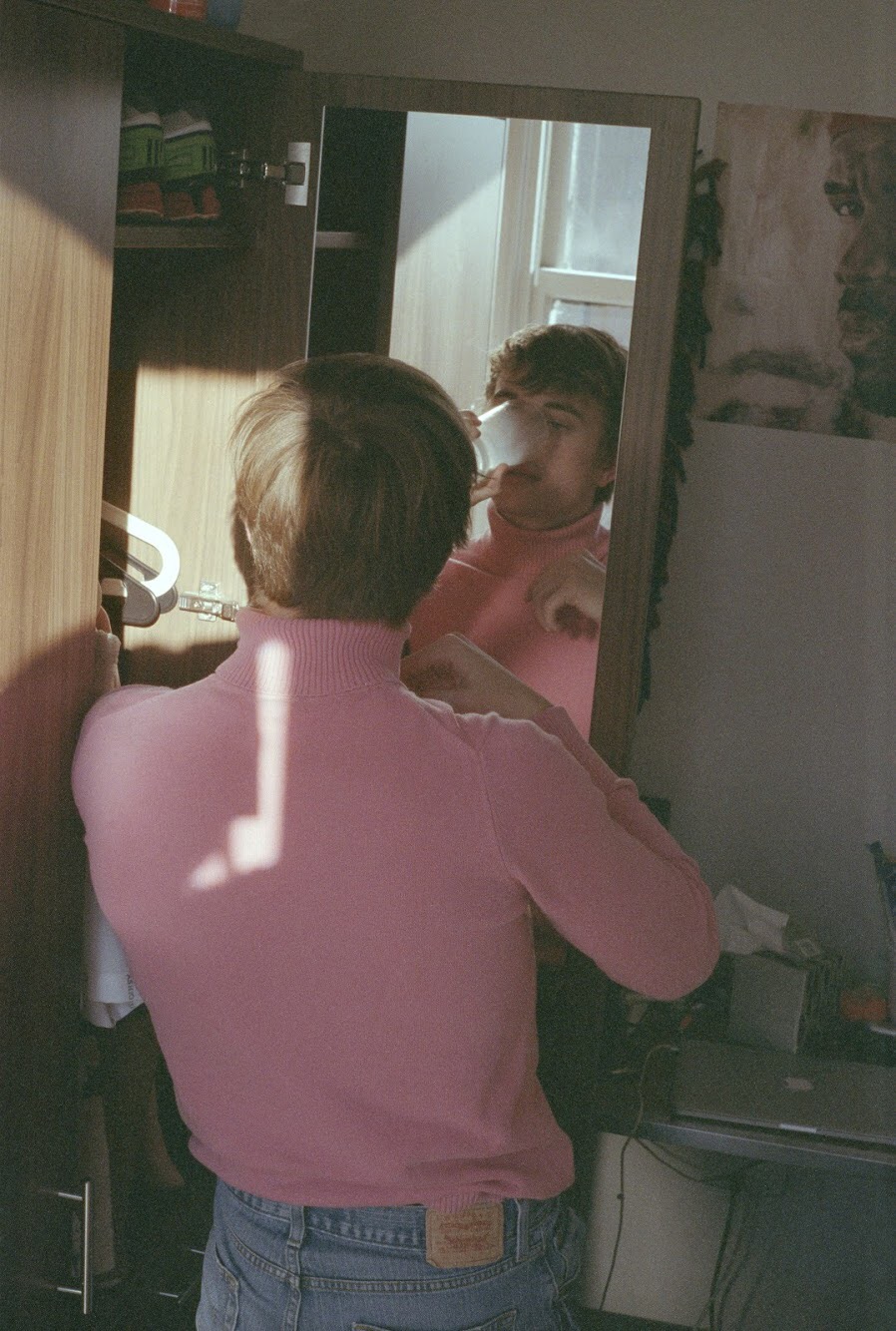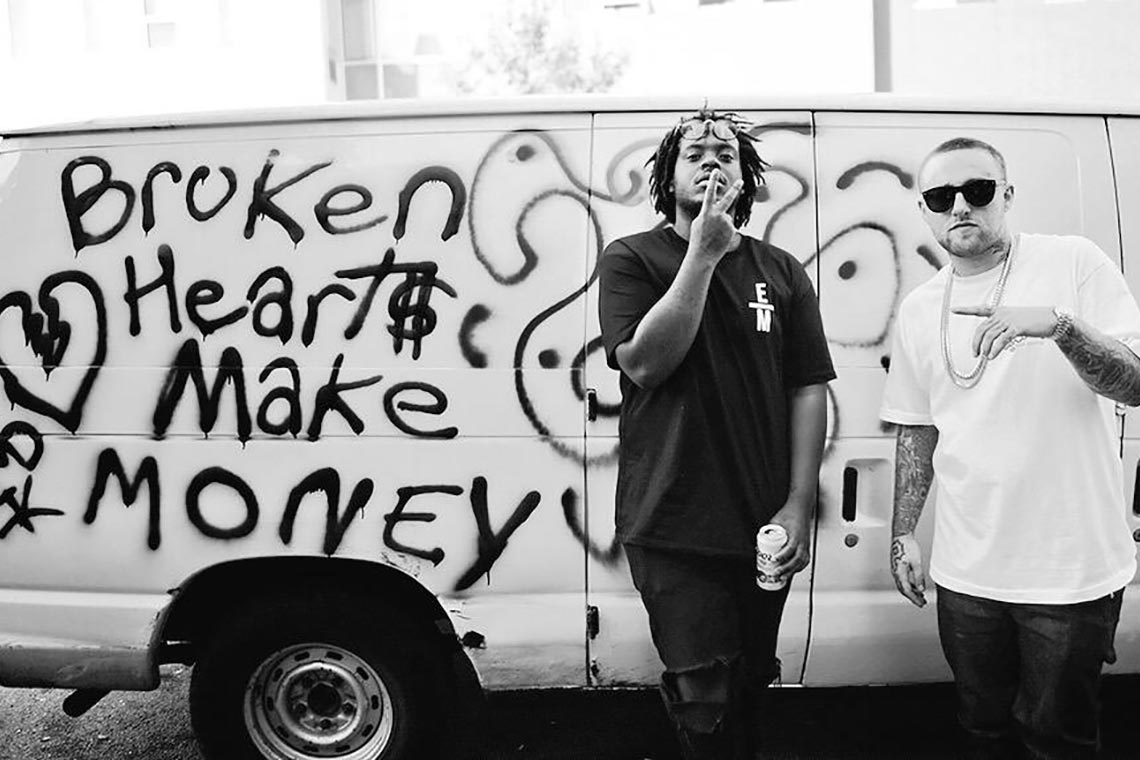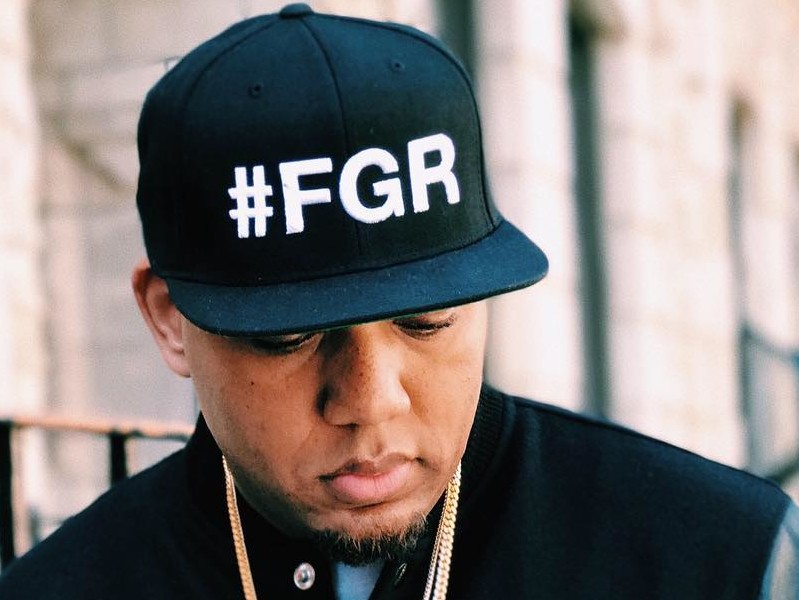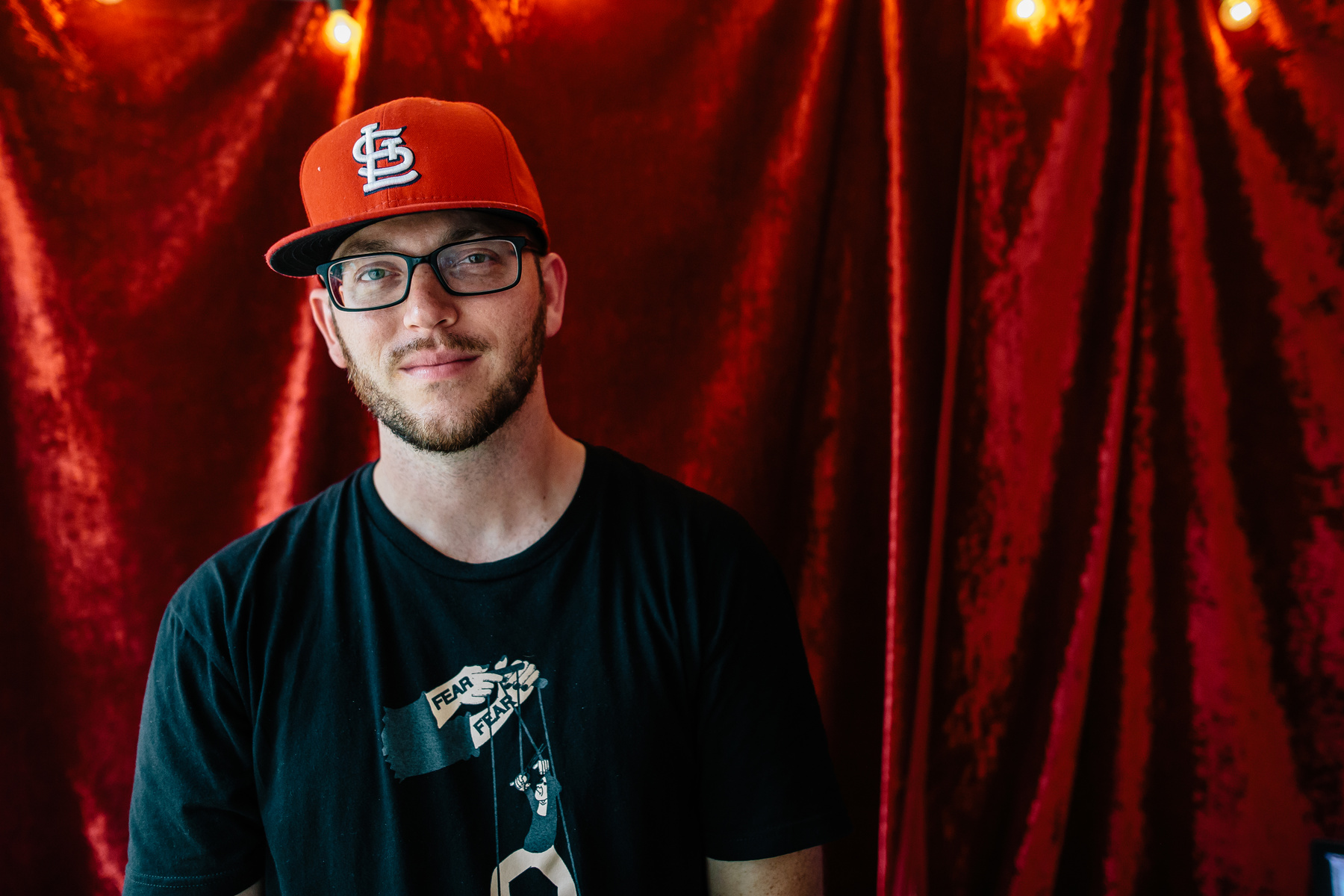RH First Look: Sovren
Sovren has made a lot of noise in the underground over the past few years. For anyone unaware, Sovren is a Pittsburgh born rapper living in Chicago. He attended Columbia College studying music/music business before dropping out to focus on his own music. If you saw him around campus, you might recognize him for his unique style in fashion. Similar to the lack of name brands covering his chest, his music is low key, yet the sonic experience each track carries demands attention.
Check out our full interview below:
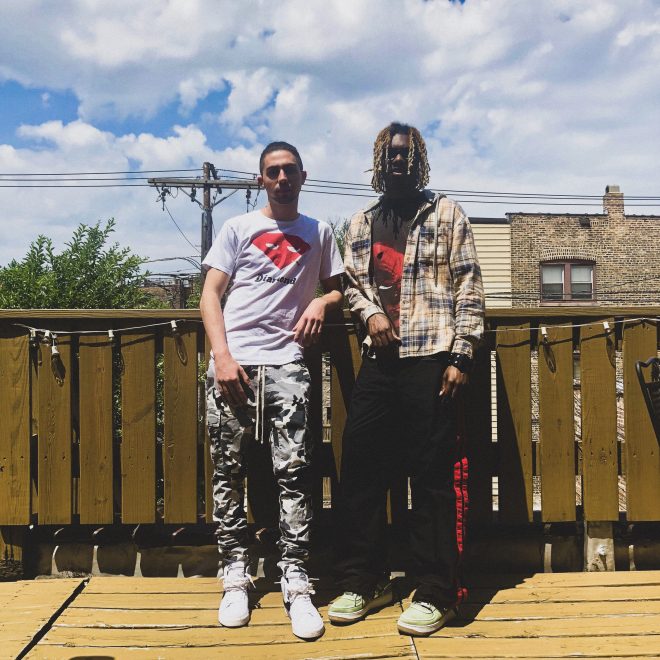
rubyhornet: Where did you grow up?
Sovren: I’m from Homewood/Point Breeze (Pittsburgh).
rubyhornet: What were some influences that led you to make music while growing up in Pittsburgh?
Sovren: A lot of influence came from Kanye West and Drake at a younger age. I went to the same high school as Mac Miller. Seeing someone you know follow their dream is inspiring. Wiz Khalifa was also going crazy. Both guys were putting the city on, so to be growing up at that time made me feel like I could really do this shit too.
rubyhornet: Who were you recording with while living in Pittsburgh?
Sovren: Big Jerm. Fucking love Big Jerm. Anything I record in Pittsburgh is with him. “Dance”, my latest track, was engineered by him. He was the first person to help take my sound to the next level.
rubyhornet: What led you to Chicago?
Sovren: I didn’t want to go to college. I wanted to take a year off, but I knew I wanted to leave Pittsburgh. It’s hard to obtain the platform I was looking for in Pittsburgh. Chicago was a good mix since the city isn’t as big as NYC or LA but they had artists such as Chief Keef, Bibby, King Louie. When I came to visit, I checked out some art schools, and decided to attended Columbia because I wanted to be in Chicago.
rubyhornet: Creatives you’ve met at Columbia?
Sovren: Jack Larsen was a homie I met early on at Columbia. He actually just signed to Closed Sessions. I also met Lil Jake before Lyrical Lemonade. In regards to producers/engineers I didn’t have that network built yet in Chicago, so I would create material all semester while at school, and record back in Pittsburgh during Christmas break or summer break.
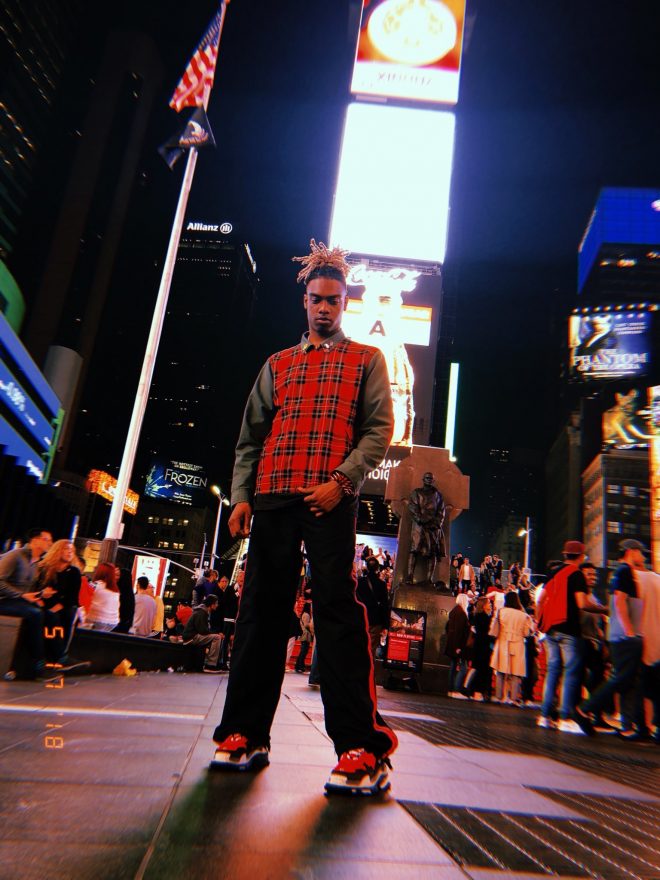
rubyhornet: What are your fashion influences? You have a clearly distinct style that is evident on social media.
Sovren: A lot of my more unique pieces come from thrift shops. I have been getting more brand name shit lately, but more of the low key pieces. You can best describe it as ‘if you know you know’ brand name shit. I love fashion. I love style. My view is clothing is a form of expression, much like music. I have found myself putting together an outfit and changing it because it doesn’t match how I feel. It’s all about the energy.
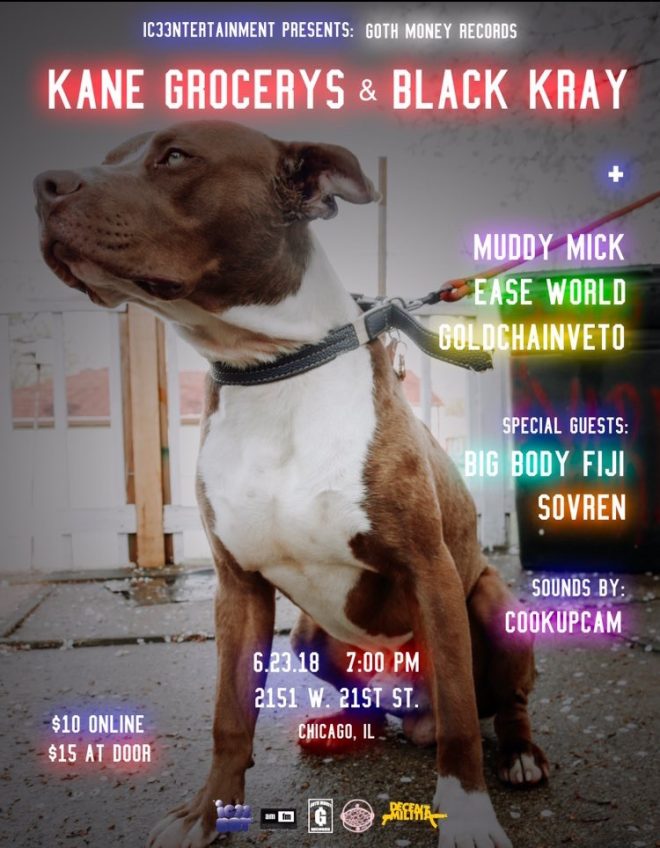
rubyhornet: What are your goals for 2018 and beyond?
Sovren: Short term goal is to put out these two EP’s. The first is called Driving Music Volume 1. It’s the lane I’m creating with jams to ride too. The second EP is called Confessions, which is more R&B and love influenced. A music video for a single off the Confessions EP will be coming out soon. I also have a few random singles, and have a show at the end of this week (pictured above).
Hopefully by 2019 I’m on a tour. Definitely not pressed or want to rush anything.
rubyhornet: What does hip-hop mean to you?
Sovren: It’s funny you ask that. I often talk to my friends about the difference between hip-hop and rap. I feel like everything from the past 5-10 years is more considered rap. The elements that technically fall into hip-hop like, graffiti, b-boy, and emceeing are more prevalent in the 90’s era. There are so many sub-genres in rap. Very similar to rock with the amount of sub-genres.
[RH Interview] TreeJay Speaks On Music & Growing Up With Mac Miller
TreeJay, a well known associate of Mac Miller, who runs his YouTube channel, produces beats, and hosts an annual 4/20 project, chopped it up with us. The Pittsburgh born stoner has hosted projects with the likes of, Dave East, Juicy J, and of course Mac Miller appearing on them. Check out our full interview with TreeJay below.
rubyhornet: Before we dive in, what are your thoughts on the XXL lineup that came out the other day?
TreeJay: I really like JID, I think he’s very talented. Also some homies from Pittsburgh (Zeke & Barry) help him out so I gotta support the hometown homies. Besides JID, I honestly haven’t listened to much of the other artists music, but congratulations to everyone that made the list.
rubyhornet: For any of our readers who aren’t familiar with TreeJay, who is TreeJay?
TreeJay: I’d like to say I’m a productive stoner ha. I got the nickname TreeJay from a kid in high school (Obviously because I smoke a lot). I made videos called “High Eyes” on YouTube back in the day of me smoking.
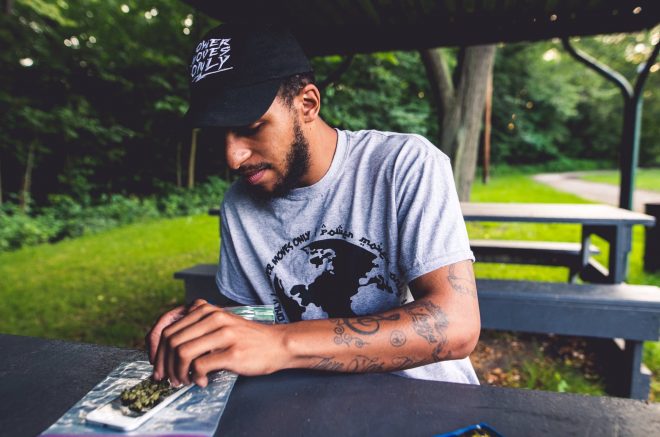
rubyhornet: How did you and Mac Miller first meet?
TreeJay: In grade school, I was a couple grades above him but we went to the same elementary school. Really started kicking it I’d say my junior / his freshman year.
rubyhornet: The amount of attention that you and your friends started receiving dramatically took off 8/9 years ago. Was there a “tipping point” or a special moment that you realized what was about to happen?
TreeJay: I remember Mac coming back to the homies crib from the studio back in the day. He had just recorded a jam and the verses and the hook were super fire for back then. That’s just when I knew it was all going to workout. I’ve always had faith, but that was the moment I was like yeah this is definitely happening.
rubyhornet: Your Sound Cloud has been pretty quiet for the past 2 years. Do you still produce beats/plan on releasing more in the future?
TreeJay: Funny you ask that, I’ve been working and trying to get better at making beats. I’m actually about to start uploading new content either today or the next few days. Really excited to get back to putting beats out. I still want to drop a little beat tape at some point.
rubyhornet: Most memorable experience while on tour?
TreeJay: I really can’t pin-point just one thing. There’s been a ton of cool moments. From hanging out with Juicy J, seeing Mac in the studio with Bun B. Watching Ja Rule come out and perform a couple hits, it’s been a fun adventure.
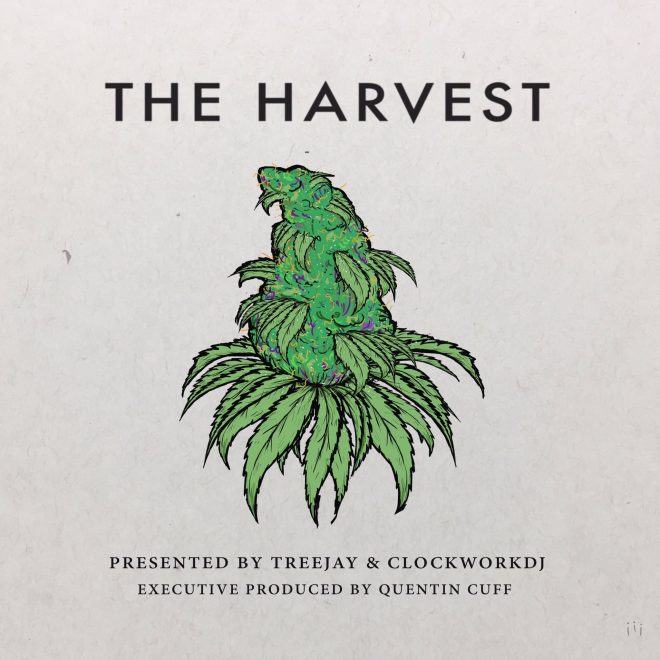
rubyhornet: Do you have anything planned for the 10th anniversary of your 4/20 tape series?
TreeJay: I have a few ideas, I’d love to do some type of Apple Music release. Would also love to have a listening party in Pittsburgh or LA. I’d rather do it in Pittsburgh, but with these new weed lounges coming to LA that sounds like the move.
rubyhornet: If you could have a conversation with yourself 10 years ago from today, what would you say?
TreeJay: To soak up all the knowledge that I can. Keep my ears and eyes open. Make sure I network a lot better. And to just enjoy life.
rubyhornet: Anyone you'd like to shoutout?
TreeJay: Shoutout Ruby Hornet! Also check out this artist from Pittsburgh her name is Sierra Sellers. She’s gonna be the next wave I’m calling it now!
[youtube id="IuU4focBYUA"]
[RH Interview] Jack Larsen
At 22 years old, Chicago’s Jack Larsen brings a loss of innocence to the table—creating a nostalgic sound through his alternative pop music. With a melodic songwriting ability, Larsen is able to capture wistful stories in his coming-of-age work. Growing up an hour away from Chicago, Larsen first began making his name on the scene by releasing songs that he made in his bedroom during high school. As an introverted music junkie, Larsen has used the internet to collaborate with other self-proclaimed bedroom artists across the country including Brockhampton’s own Kevin Abstract. We sat down with Jack to find out where his music comes from and where he’s trying to go with it.
rubyhornet: I know you’ve been asked this a ton of times but, how would you classify yourself?
Jack Larsen: That’s a question that I still don’t even know. I would definitely say like indie-pop, but there’s some future R&B just through the effects that I use are pretty futuristic or avant-garde, plus I draw from a lot of R&B influences, new-age as well as old.
rubyhornet: Any artists specifically?
Jack Larsen: On the R&B front? I love PARTYNEXTDOOR, his old shit. When I heard that I really wanted to sing because it was such a new sound that was so fucking good. I don’t know like the classic R&B stuff because I didn't grow up on it; I grew up in a different environment.
rubyhornet: What’d you grow up listening to?
Jack Larsen: My dad and mom would play a lot of Beatles, Crosby Stills and Nash… My first favorite song was "Our House" by Crosby Stills and Nash. And then when I first got my iPod, I was in 4th grade--that’s when I first got iTunes, and the first album I bought was 3 cheers by my chemical romance. I grew up on that emo/pop pop/punk. They were the queen of pop-punk, they were really bohemian, free-spirited and theatrical, so I loved My Chemical Romance. Even now, I still have a pop influence that stems back to them being pop in the punk game, like a darker pop. I feel like pop’s everywhere, so I would listen to them and then get into other music just through iTunes. I would explore iTunes for so many hours just finding people.
rubyhornet: You weren’t on limewire?
Jack Larsen: I wasn’t on limewire. My parents would track the computer so I couldn’t do any of that shit. Plus, I think I was a little too young for the limewire age, like to understand how to do it.
rubyhornet: So, you like making out. In your lyrics and videos it seems like making out is a pretty strong theme.
Jack Larsen: Obviously. Who doesn’t like making out? Also the intention was there because if I wanted to make a coming-of-age project, I had to think of stuff that related to coming of age experiences and I think making out is something that everyone when they’re younger is looking for their first make out. It’s definitely a young adult, teenager experience that helps you grow as a person you know?
rubyhornet: So, is that who the album is for, young adults?
Jack Larsen: I didn’t want it to be trapped to this young adult crowd because I want other people to listen to it as well. All of these songs were written at an age where they all made sense in my life so because I wrote it at like 19-20 years old--it’s probably going to attract people that age and I’m okay with that.

Photo by Sala Johnson
rubyhornet: I think maybe, with making out it’s interesting because it is a younger experience, but it also seems less aggressive, kind of more innocent. I think that you really balance between masculinity and affection throughout the album.
Jack Larsen: That’s just who I am, I’m a very feminine person. I don’t know, I’m not really a strong, in your face kind of guy, you know?
rubyhornet: Well, I don’t think it’s really feminine, it’s just don’t think it’s macho, it’s just a different kind of masculinity.
Jack Larsen: Exactly. That’s kind of why in these lyrics i’m kind of innocent, but with the art I want to look hard as hell. Just kind of scowl at the camera, because it kind of touches on that whole masculinity question, which is why in the art I want to come off as more masculine.
rubyhornet: It’s cool, it’s a redefinition of masculinity that’s happening as a larger social movement of questioning it, like with brockhampton for example.
Jack Larsen: Well that’s kind of why I am who I am, because of my relationship with them. Ever since I first met Kevin when I was 17, I was a senior in high school. Just being friends when him and then the rest of the group showed me a really interesting part of who you can be. I grew up in a very well-off suburb, lots of wealth in the community, and it was pretty much exclusively white. So you know, I didn’t grow up with a lot of diversity or other thoughts, it was very closed minded. So, I took to the internet and just started reaching out to people, then meeting all of them really opened up my mind, and I feel like I’ve definitely grown to see a lot of different parts of life and who you can be as a person.
rubyhornet: So you guys met on the internet? How did that happen?
Jack Larsen: My friend showed me a song, and so I DMed him (Kevin Abstract) saying, “I really like your stuff, if you ever want male vocals on a song I’d be down,” and then he sent me the track that went on his first album, 27, which I recorded to.
rubyhornet: So the internet is a big part of your presence and growth
Jack Larsen: Yeah. That goes back to me growing up in a town where sports are the main focus and art gets shoved aside. And I was kind of blinded to that;I played sports for so long and didn’t even touch art. But the internet was kind of my escape to new thoughts and new ideas, and it’s like my home now, you know? I love the internet.
rubyhornet: It’s easy to feel like an outsider on the internet though. It takes a sense of boldness to just message someone saying, “hey, I sing and I like what you’re doing. Maybe we can work together.”
Jack Larsen: Yeah... I don’t know if I would even do that today. I’ve had a few people follow me since Push-Ups that I really admire, and I haven’t messaged them yet because I kind of feel like, back then me and Ian we were bots so young that we were looking for anyone to work with but now we’re at an age where it’s like, “who’s this annoying person in my messages?” I guess I was more confident back then; the internet is very intimidating. I feel like social media has also changed since I first messaged Kevin years ago, it’s just a whole other world now. The internet was innocent.
rubyhornet: That’s also how you met Chris Hatam?
Jack Larsen: Yeah that’s how we met. I think he heard the song from Kevin’s album. That’s how I met a lot of people. We’ve just always clicked with what we wanted to make so he came up to Chicago for a week last summer, and that’s how we created the foundation for the EP. And then he left and I just recorded it in my dorm for the rest of the year.
rubyhornet: So it’s true bedroom-pop in that sense
Jack Larsen: Well yeah, Mike took what I made and beefed it up, but I recorded and did my mixing and all the effects in my bedroom. Then I finished up last November.
rubyhornet: Dream collaborations, if you could work with anybody who would it be?
Jack Larsen: I would say my idols, but I don’t even feel like I would make a good song with them right now. One artist I want to work with is Knox Fortune, probably because we have a similar indie-pop vibe and I like what his recordings sound like a lot, they’re really good. I dug his album. He does a lot of pitch shifting and I do a lot of pitch shifting, just modulating your voice and doing cool shit like that. I think we could make something really cool. That’s a realistic collaboration though, not really a dream. I don’t know, if I had Kanye call me up right now, man…
rubyhornet: Would you go?
Jack Larsen: I don’t know… I probably would, but dude…
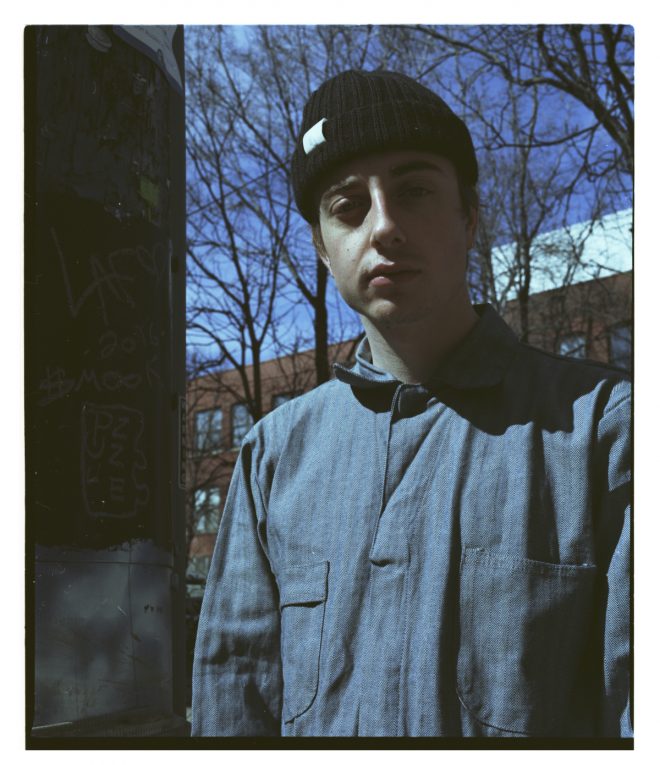
Photo by Bridges
rubyhornet: What I really like is the honesty in your EP. I think the insecurity with relationships throughout it is really relatable. There’s a line specifically where you say, “stop looking under the bed,” that really struck a chord in me because it’s kind of childish but also very true and something that doesn’t really go away and not really something that goes away. Was that a goal of yours to talk about insecurity?
Jack Larsen: Oh yeah, on “Break” in particular. I was really inspired by Sufjan Stevens’ Carrie & Lowell--it’s one of my favorite albums of all time. He’s just super blunt with his lyrics. I was like alright, I need to make a song where I’m just super blunt and upfront about my childhood and growing up in general. The song took three months to write because I wanted to be really specific with all the lyrics to make sure it told a story. I was making the video at the same time, even before the song was finished, just shooting my life because I knew it would match the song in my head. So yeah, lines like, “stop looking under your bed,” or, “hand me a t-shirt, I know you have one at the foot of your bed,” are specific lyrics that resonated with childhood or growing up. All of that was purposefully written about growing up.
rubyhornet: It’s cool because the way that that video is shot is so vintage.
Jack Larsen: Yeah I bought a super 8 camera and film, then shot it and sent it to California. The other part was just handycam, digital 8, and then I mixed both together.
rubyhornet: wow that’s really cool. And it’s works with the idea of bringing childhood experiences into modernity and addressing how it’s still there underneath everything else. Even if you’re all bad ass and tattooed and running around being a punk there’s still a sense that you’re a kid and looking under your bed.
Jack Larsen: that’s just me.
rubyhornet: Who are you production influences?
Jack Larsen: Jai Paul, he’s been reclusive. He’s this British pop-artist who is Indian, so he has all these Indian influences in his music and he got signed to XL. There was this whole controversy about his album getting leaked on Bandcamp in 2012, and ever since then, he’s been gone. But he’s one of my biggest influences. I would say Frank [Ocean] is always going to be inspiring. And Sufjan Stevens; I think it’s because we both have soft voices I really resonate with him too. I’ve always wanted to belt, but I can’t be that singer. I’ve had to accept the fact that my voice is warm and soft, and I have to build around that.
rubyhornet: What color is your music?
Jack Larsen: Color? I would say a blue-ish green, kind of like the album cover. Also, the posters that are up now--the gold and pastel blue--those are really cool colors that I think reflect the music well.
rubyhornet: Tell me about the “Break” video.
Jack Larsen: That was just me and my girlfriend. If I wasn’t in the clip, I was shooting, if she wasn’t in the clip, she was shooting. Until the very last scene, we had one extra person help, Daniel Ruiz, who helped with the car scene where I was in the road, and he helped with the scenes where I was lip-syncing in the magnifying glasses. So, he came in at the end, but in the beginning, it was just me and my girlfriend. I put all the clips together, like I learned Final Cut and kind of learned as I made it. I had it in my head for sure. I knew I wanted to do a montage because that’s how you do coming-of-age, you know? Show your life. So I knew I wanted to do that, but there were elements that came later on like the magnifying glasses. I thought they would look cool for the cover, and then we put them in the video too.
rubyhornet: Fashion is something that is obviously important to you. What’s your approach when it comes to your style?
Jack Larsen: I just follow people if I like how they look. I take ideas from different people and put it on myself, just like art in general. You kind of copy in your own ways and make it your own. I’ll just look every day at what’s new and follow people on Instagram that I like. But I like to study brands a lot so I look at people who design the clothes to get inspiration for what to wear. I didn’t really get into that until later in my life, like 4 years ago. Before that, I had no clue about anything with clothes.
rubyhornet: Is there anything else that you want to say?
Jack Larsen: “Push-Ups” is out now. I feel like it’s a good introductory album. Up next, I’m working on new music. My friend from Canada came, and we were working on a lot. Chris just moved to Chicago, so we’re gonna get a ton of music done. And I’m working on my live show. You’re gonna see a lot more of me.
[RH Interview] ADot
I had the pleasure of sitting down with ADot yesterday while he was back in town from LA. For those of you who are not familiar, ADot is a Chicago born rapper with a few short projects out. He is well known for his hazy instrumentals and deep smooth vocals. Check out a few questions below I pulled from our Interview!
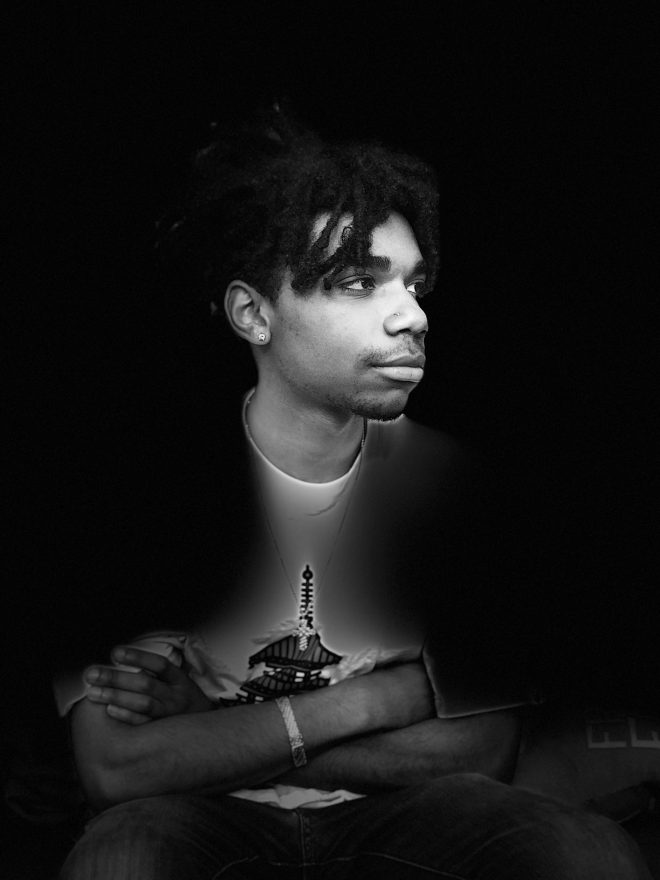
rubyhornet: Pusha T or Drake?
ADot: Drake, everyone listens to Drake. As soon as he puts out new material, everyone who’s hating on him now, will be back listening to him. Drake is winning regardless.
rubyhornet: Thoughts on the new Ye Album?
ADot: I like the last song, "Violent Crimes." I listened to it coming back from LA, but Kanye really lost me with all that Trump shit.
rubyhornet: What should our readers know about ADot?
ADot: I’m not a clout chaser. I would rather move like a ghost than be in the headlines. I make music, but I don’t really care about all that other shit.
rubyhornet: Where does your name come from?
ADot: I used to play a lot of Gears of War in high school, where I was in a group called Ace League. KDot was also popping at the time. My name is Armani, so all of those factors combined led to my name.
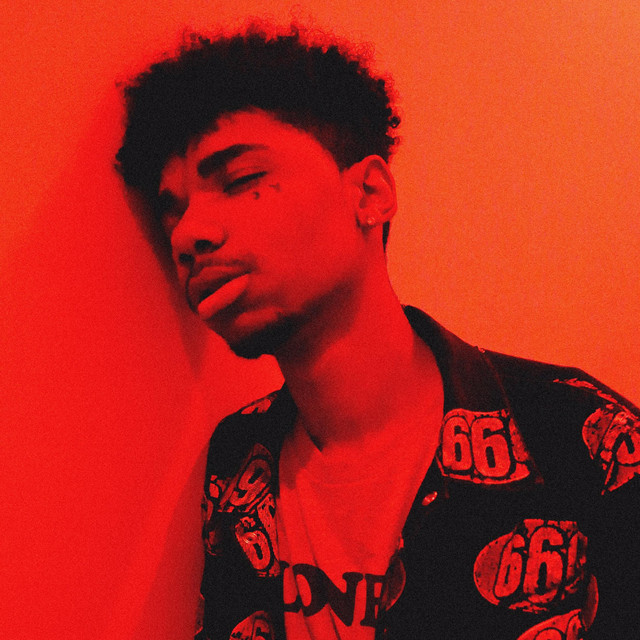
rubyhornet: Tell us about your tattoos.
ADot: I have the moon on my finger and face. Usually I write and record my music at night. My old room had a nice view of the moon, and something about it is aesthetically pleasing to me. I also had trouble sleeping a lot. The playboy bunny tattoo, I also have on my face, is because they're one of my favorite logos. I used to buy so much Supreme and they always collaborated.
rubyhornet: Relationship with Lyrical Lemonade?
ADot: I shot a video with Cole Bennett in 2013/2014. It was one of his first videos. Lil Jake hosted a few of my tracks. All of those guys are cool as hell. They look out for the people they started working with in the beginning. I recently did a shoot for them where I got the Lyrical Lemonade hoodie I’m wearing now.
[youtube id="78gjW05P9Yo"]
rubyhornet: Where does the Mac Demarco influence come from?
ADot: "Another One" is one my favorite songs by him. The synths sound like I’m playing a spacey arcade video game. I play a lot of videos games. I like being alone a lot, or with my girlfriend. Being around people all the time is draining.
rubyhornet: Favorite video games?
ADot: Fortnite, Bloodborne, Final Fantasy XV, Kingdom Hearts, and a lot of RPGS. MW2 will always be the best Call of Duty, but the newer Call of Duties are kind of trash now.
rubyhornet: Who’s in your playlist right now?
ADot: Gunna, Young Thug, Juice WLRD, Lucki, and then my homies Lerado, Freako, Kush, and myself.
rubyhornet: What should fans be on the lookout for?
ADot: A lot of videos. The "Heartattack" video for sure. Along with experimenting with new sounds.
[RH Interview] Lil House Phone
When the name Lil House Phone is brought up in discussion what comes first to your mind? Another 'lil' rapper that's part of the new wave of music? That dude from the No Jumper Podcast? Or that hysterical guy dissing Pacsun and tossing burgers on Twitter?
Regardless, the LA native is making his own lane in the rap community. From serious tracks about depression and drug abuse, to lighthearted videos like "Juice", House Phone has a lot of new material to look out for in 2018. When speaking with the humble entertainer this weekend, he enlightened me on his perspective of the industry, what makes him want to make music, and about the three projects he will be releasing in the near future.
Check out the full interview below:
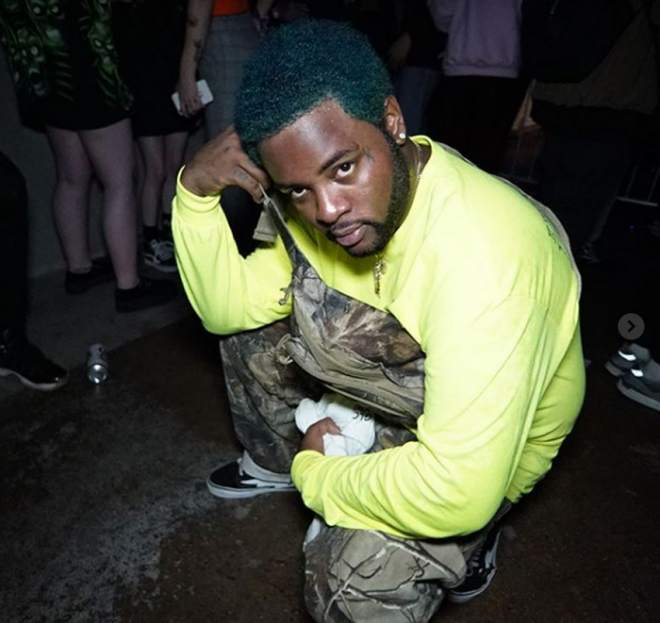
rubyhornet: Where does the name Lil House Phone come from?
Lil House Phone: It was a joke my friends had. My friends would tease me since I never had a working cell phone. I would always sell them or lose them and they had no way of contacting me, so they had to call my house phone. So it was like a joke from my friends and I kind of ran with it.
rubyhornet: Has that always been your stage name?
Lil House Phone: Yeah, when I decided to start rapping that was what I thought of. My friends were already calling me that. I thought it was so ridiculous it would stand out and be funny. Complex did a whole article with the 10 most ridiculous rap names, and I was all over that shit. I guess it was kind of a good thing.
rubyhornet: What’s your favorite late night food?
Lil House Phone: Some good LA street tacos from a small Mexican lady on the corner. Always a good go to.
rubyhornet: Your newest project has a lot of turn up tracks. Do you plan on making more songs like "Lil Sad Phone" in the future?
Lil House Phone: I am an emotional roller coaster of a person so it’s really how I’m feeling. A lot of the times I make music for me going out. I keep the turn up tracks in mind for performing. I’m all over the place though, so I definitely have to touch on where I am at the moment. I got some new shit, a new album that’s all over the place.
This kid got "Lights Off" tattooed on his knee (a song off my first album about depression). That makes me want to keep making music. That’s really what you do it for, to get that kind of reaction from people. I was honored.
rubyhornet: You have an A$AP Yams inspired Xanax tattoo on your knee. Do you believe the Xanax culture is more prevalent now than in the past, or are people just more aware now?
Lil House Phone: It’s a mixture of both, its more relevant and more in your face because everyone is talking about it. They are talking about the good parts, and not the bad parts necessarily. I feel like a lot of rappers just put in these words, like drinking lean, because it sounds good in the song. I don’t think a lot of these people are actually doing this like that. They aren’t thinking about the impact they are having on these kids either. They are making the kids more likely to try this shit. If I'm listening to a Juicy J song every day, and he's talking about dipping my blunt in lean, I'm going to get some lean and dip my blunt in it, not releasing shit doesn’t even work like that. Like that has actually happened to me. I dipped a whole swisher in an entire pint of lean and we tried to spark it and didn’t even light. It was all sticky and wet. At that point I was like maybe I shouldn’t listen to rappers.
rubyhornet: Do you feel responsible for what you say in your songs, or do you feel like you’re clearly just having fun and people shouldn’t take you serious?
Lil House Phone: I would hope people understand I'm just having fun with it and they wouldn’t take the same path as me, but impressionable minds are going to be impressionable. I talk about my drug consumption openly. I have kids that DM me saying, you make me want to try coke or whatever. I always DM back saying this isn’t the path you want to go down. This shit isn't cool. Even in my personal life if I'm kicking it with someone who hasn’t tried a drug before I'm not going to encourage them to do it. That’s not a path you want to take someone down.
As I'm getting older, I realize I have kids in high school and even younger looking up to me. I don’t think I'm a role model, but when these kids are looking up to you, you have to take some type of responsibility.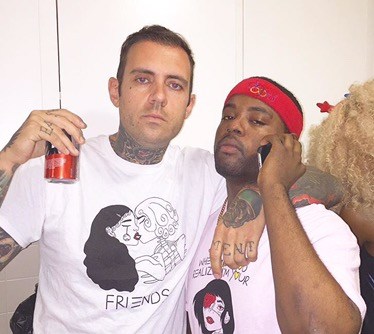
rubyhornet: How important do you believe your relationship with Adam & No Jumper was in getting attention to your music?
Lil House Phone: It all kind of happened at the same time so I never really got a chance to take a step back and adsorb what was going on. No Jumper wasn’t at the level, that it is now, when I started being a guest. It was really just me hanging out with Adam, his friends, and doing a podcast now and then. I started making music around the same time. Then No Jumper started getting to the level like where it is now. Both were progressing simultaneously.
It went from people only knowing me from that dude on the No Jumper Blog, to people saying I rock with your music. I thought people only knew me from the podcast, but more recently a lot of people have been reaching out who know my music and have no idea I was affiliated with No Jumper.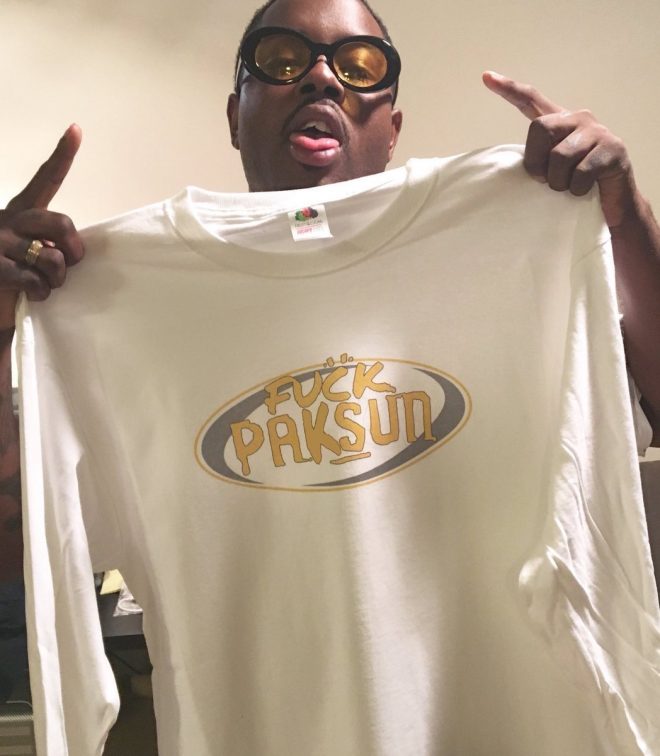
rubyhornet: What is your favorite place to shop (besides Pacsun)?
Lil House Phone: I'm more of an in-house brand type of dude. I would rather find some random cool brands no one knows about and hit them up in Instagram. I'm really into random workmen wear like Carhartt. I'm wearing some tree camo wranglers right now.
rubyhornet: Any new music to let the fans know about?
Lil House Phone: My album Voice Mails 2 is on the way. I'm also doing two other side projects. I want to do this whole west coast style project called 310, since I'm from LA but I'm known for making trap sounding music. Nedarb and I are going to put out a 5-6 song EP pretty soon also.
RH First Look: Choo Jackson
As a young kid growing up in Pittsburgh during the Black And Yellow era, the success from artists such as Wiz Khalifa and Mac Miller took my interest in rap music to a local community for the first time in my life. When exploring underground artists associated with these larger acts, Choo Jaskson was a name that popped up frequently. The Florida native, who relocated to Pittsburgh, has since been signed to Mac Miller's label REMember Music.
After dropping several projects with REMember Music, and the collective project, FOREVERKOOL : BEFORE THE DIRT VOL. 1, Choo has surpassed millions of plays on Soundcloud. Below Choo's latest tracks, I added our interview.
rubyhornet: Where does the name Choo Jackson come from?
Choo Jackson: Choo is my childhood nickname, a family name from my grandma.
rubyhornet: Favorite late night snack/food?
Choo Jackson: Favorite late night snack is probably just cereal . I’m trying to do better with the eating late shit.
rubyhornet: I see you have “Forever Kool” tatted on your hand. What can you tell us about ForeverKool Records?
Choo Jackson: Foreverkool records is an indie label I created with my best friends. Artist/producers and creatives. Muneykidstaxx, Phil 800k, Cadet, Bubba, Bradley, Brennan, and Christo as well. We’re trying to build the next indie label for the kid that couldn’t get a chance because they're in a small town or just a weird situation you know.
rubyhornet: Do you plan on staying in Pittsburgh for the near future? As a Pittsburgh native myself, I know the music scene in the city has different opportunities/challenges than what one would experience living in LA or NYC.
Choo Jackson: Na I’m actually moving out of Pitt right now. In a few weeks I’ll be out. Going back to help my mother recover from a surgery she’s having. Help for a few months then make a move to the Atlanta area. And I’m actually not a Pittsburgh native I’m from Florida on the real, but I feel like Pitt embraced me so much I see why it can be confused. And yea it’s challenging, the scene here is growing though, and I’m apart of that. I’m just gonna expand it, and take it with me on my next chapter of life. Just as I did in Florida and Chambersburg, I bring my experience with me.
rubyhornet: What’s the craziest thing that has happened to you during a live performance/tour?
Choo Jackson: I think it was Orlando Florida. I was on The GO:OD AM tour with Mac. I’m performing and it’s so lit. The crowd is treating me like fucking Jimi Hendrix or something. Asking me to hit the weed from the crowd, so of course I took the blunt. Then someone says jump in the crowd. Mind you I’ve always been kinda heavy, and a running back in high school, so I didn’t think it was possible, at least for me. I FUCKING JUMP IN THE CROWD and they carry me all the way out like wtf .. yes! Finish my set. Hop off stage, walk back stage, then me and someone got into an argument and was about to fight. Chairs got thrown, I almost got kicked off the tour, haha shit was crazy .. real rockstar shit.
rubyhornet: What producers do you hope to link up with in the future? Between Christo and yourself, it appears like much of the production work is achieved locally.
Choo Jackson: Just Pharrell and Ye. I’ll let Cudi produce an album for me. And South Side. That’s my dream team, other then Christo and Muneykidstaxx. I’m really trying to keep it in the fam. But that’s my producer list, facts. And yea me and Christo do everything from beats, A&R, and picking all the songs, he's really like my Chad Hugo. So we wanna keep the levels up, plus he killing shit with J.I.D.
rubyhornet: What should fans be on the lookout for during the rest of 2018?
Choo Jackson: What fans should expect from me is a lot of work. This is my Lil Wayne year. I’m gonna put out at big album, Called LYNN. And a slew of mixtapes, collab tapes, and EPs everywhere . So it’s on for everybody. It’s not safe for anyone.
[RH Interview] Skyzoo: Sociology Raps
"I wanted people to hear every single word I had to say. I didn't want there to be any confusion about what you heard," Skyzoo tells me on a cold Thursday night in February. His new LP, In Celebration of Us, has just dropped and Skyzoo is seeing a bevy of press and praise surrounding his new LP. His voice, always a signature for the Brooklyn born emcee and writer, is confident and grows in excitement. "Fuck it. If you gotta hear the whole song again, you're going to hear the whole song again.' It's that necessary."
And so, Skyzoo dropped a new LP that starts with an opening track ("Everybody's Fine") that clocks in at over 8-minutes long, a lifetime as far as songs go in this day and age. But this album is not any normal album, and Skyzoo makes it clear from the opening seconds that In Celebration of Us is a serious piece, and requires an investment from the listener.
On this cold night in February, Skyzoo talked to me in-depth about his new LP, one that he has called the hardest of his career in terms of writing and recording. He was diligent in the subject matter and the stories on In Celebration of Us, an album that he approached like a sociologist undergoing a deep study into his people's past, present, and future.
Read the full clip below.
rubyhornet: Congrats on the birth of your son, what's his name?
Skyzoo: Miles.
rubyhornet: Is that after Miles Davis?
Skyzoo: 100%. You know, I'm a Jazz head. Sunday Morning Jazz on my Instagram, you know I'm a Jazz head so it was only right. Miles Davis is my favorite Jazz musician of all time - if not, one of my favorite musicians period of all-time. So it just made sense. I've said since I was a teenager that when I have a kid, if it's a boy, I'd name him Miles. So it was meant to be.
rubyhornet: The album seems to tell the story of your childhood, growing up and other people you've witnessed. At what point in the story did you fall in love with Jazz? Is that in pieces of this album.
Skyzoo: Yeah, my Jazz affinity came from having my pops. He was into Jazz my whole life. When I was a kid, 12-13 years old, I wasn't into it. Because as a writer - there are no words in Jazz. As a kid I used to tell him, 'this music is stupid, man. There aren't even any words." He used to say, 'man, when you get older, you're going to learn to appreciate it, and you're going to fall in love with it." As I got older, I did. It was between him and the movie "Mo Better Blues", seeing that I as got older, the two culminated to my love and affinity for Jazz. I listen to more Jazz than Hip Hop. I listen to Jazz every single day.
rubyhornet: I want to get into the album. It starts with an 8-minute song, which is rare these days. It's like you are demanding an investment from the listener from the jump. Was that on your mind in that decision?
Skyzoo: Totally, Totally. As someone who puts out music for a living, I know the attention span of people. How that works, how that goes. The way I formatted it, I just felt it was so important. It was so important for people to hear it that way, for it to setup the album, and introduce the album. So out of that 8-minute song, the first two minutes are a skit between two characters that are supposed to be my father and my godfather, they're best friends. Then you have the actual song, then when the song is over I spit the whole song again with no drums. I felt like that was important because I wanted people to hear every single word I had to say. I didn't want there to be any confusion about what you heard, if you missed something, if you caught something, if you weren't paying attention. So I said, 'fuck it. If you gotta hear the whole song again, you're going to hear the whole song again. And that's what it all came down to, and people have absolutely loved it. No one complained about the fact that it's 8-minutes. People have loved everything about that.
rubyhornet: You just mentioned the skit at the beginning with your dad and his friend. Then at the end You tell a story about a child growing up and going to different schools and thus through those schools, different worlds. You could have equally put that story at the beginning of the album and introduced yourself, and it makes a difference when placed at the end. What, was behind your decision to put that at the end, and then letting people know that was you? It's like a big reveal in a way.
Skyzoo: I wanted it to be the story arc. You hear these guys talking in the beginning. One is telling the other that he's having a son, and he's got to change things in his life. Then you see all these things that go on with our people. Black people and Black culture. And what makes us the way we are, why we are the way we are, and what makes things the way they are, you get to the end and I'm explaining the story of this kid having both his parents his whole life, and how important that was. Then I reveal that the kid is me. So, I'm going back to the story that started in the beginning. If you're listening in the beginning, it becomes, well here's what happens to the son. And here are all the different things that he had to face, and that he has to face as a young Black Male. That's why it's so important that that guy at the beginning of the album continued to decide to be in that kid's life. Of all these things that go on in the world, that kid needs that guy the same way every kid needs that guy to be their father.
rubyhornet: Your parents had you very young, you just welcomed a son into your family. Could you imagine having a child when you were your parent's age, and thinking about what you were doing at 19?
Skyzoo: Not at all, I totally couldn't do it. My parents are way better than me. At 19, I was ripping and running, man. I was outside running the street, picking up some girl's number, doing this and doing that. I was ripping and running man, at 19. I couldn't have done it. They're better than me. I'm 35, so having my first son at 35 is a world of difference between being 19. When my parents were 35, I was what, 15, 16? That's insane. I could not imagine having a high school junior right now. We'd probably fight everyday. It just shows who they are, and why they're so special.
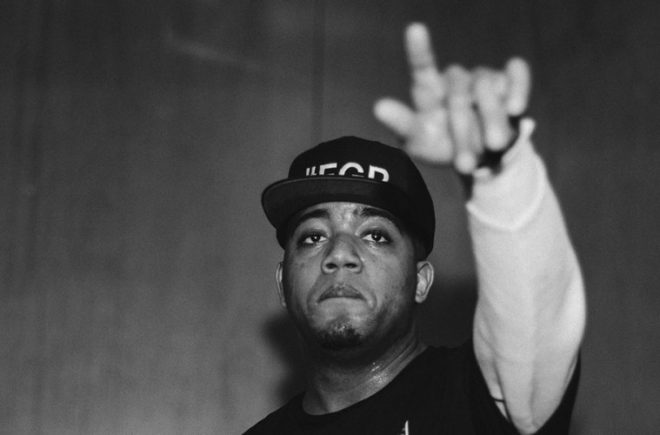
rubyhornet: The press release drew parallels to Ta-Neishi Coates. Between the World and Me was written as a letter to his son. Was your own impending fatherhood the impetus for channeling him on this project?
Skyzoo: 100%. I read the book before Miles was coming, but 100%. It spoke volumes to me because here's another story of a Black male being in his son's life, forever. Never taking a day off. Never taking a moment off and Ta-Neishi Coates explaining what's going on in society. I always had the plan of telling our story and making this album a very pro-Black album. A very aware album, and things like that. Once I found out I was having a son, it added that element to it. And I said Ok, 'I want this album, as pro-Black as it is and as aware and focused as it is on these things, I want it to be a cautionary tale to my son. So later when he's 16, when he's 20, 25, he can listen to this album and know what's going, what to expect, what not to accept, what not to tolerate, and what to be prepared for that's going to be waiting for him in this world, as a young Black male.
rubyHornet: I want to talk about that, but first to get context, What was happening when the light went to make this album and to make it as pro-Black and such a look into what's happening, explaining situations. What was happening in your life, and what was happening in America?
Skyzoo: I think it's just a culmination of everything we've been going through and just being fed up. There's no way you can live in this world and not see what's going on as far as Trump, as far as police brutality, as far as cultural appropriation, as far as economic crisis, there's no way you can live in this world and not see those things. It was just hitting me, everyday. I've always been someone who's spoken on things in one way or another, whether it's lightly or whatever the case may be. But I said, 'man, this is insane, what's going on out here. How do we fix this, how do I contribute and do more - more than I've already done?' I've always been aware, I've always spoken on certain things. How do I take it a step further? Well, let me use the art to go a step deeper and a step further than ever before. And that's where it all came from. And I felt like it was all needed.
A lot of it also came from Solange's album, Seat at the Table. It's an album that I love, and I was very inspired by that album as well. And when people ask me in the short term, 'hey, if you had to describe this album in one sentence, how would you describe it? I'd say, 'it's the Hip Hop version of Solange's album.
rubyhornet: I want to talk about your examination of race throughout the album. I think it is safe to say that as a traveling artist, you probably have more experience, exposure, and relationships across racial and ethnic communities than, I don't know, 85% of Americans, from wherever they're from. Do your travels as an artist across cultures, races, ethnicities, etc inform the stories on this album, either the stories you're telling, or the way in which you want to tell them?
Skyzoo: It definitely influences and effects, because when you go overseas, I go overseas numerous times per year for tour. And when I go, I'm there for an extended amount of time. I'm there for 2 weeks, I'm there for a month, I come home, I'm gone again for a month. So when I do all those things, I'm able to experience different types of cultures, and I'm able to experience the way Black people are treated and the way Black people treat each other when they're overseas. And it's crazy, because the way Black people are looked at in Europe or some of these different places is amazing. The way we're looked at is so different than how we're looked at in the states. You also still have certain places where it's pretty harsh. It's just irony of all these different walks of life and different ways, and cultures, and how we look at each other. I'm able to experience all of that. I'm able to say, 'why is it like this at home, when it's like that overseas? Why is one way here, and another way there?' And I'm able to take that and put that in the music as well.
rubyhornet: One of my favorite lines on the album is, "Sounds like a fist in the air, meets a brick in the air, meets baguettes, meets the vision impaired." After a few listens, that bar seemed to hit at the crux of the album itself and summing up the theme and the purpose.
Skyzoo: You nailed it. That song is called "Sound Like", and I was trying to think of another title, something more poetic for a title. I'm big on titles, I'm big on - "The Stick Up Tape Menace", and "Parks and Recreations", and "Black Sambo", I'm big on song titles and I've always been. I was like, "Sound Like" is such a basic title for a complex song. But it made so much sense. This is what this album sounds like. The album sounds like this, this, this, this, and this. That's why it's at the beginning of the album. I'm letting you know what to expect for the next 60 plus minutes or whatever it is. This is what to expect on this album. It sounds like this, it sounds like that.
It sounds like a fist in the air - Black Power
Meets a brick in the air - hustling, going for it outside, this heinous world of activity that people don't understand.
Meets baguettes - shining off that.
Meets the vision impaired - those who can't even see how much you're shining.
Or, it sounds like vision in pairs - multiple eyes, multiple sets of eyes looking how much you're shining, looking at what you're doing.
And depending on how you pronounce both is what'll get to appear - either someone's trying to take what you've worked so hard for, or someone's saluting you for what you got, or someone wanting to be like you or someone wanting to be beside you, or someone wanting to see your downfall.
Those are all layers within that four-bar stanza. And that's just the smallest tip of the iceberg on there.
rubyhornet: You mentioned "The Stick Up Tape Menace", the second time I heard it I feel like I was listening to a letter from you to your younger self, is that the case?
Skyzoo: Could be. Yup, that's a cool way to look at it. And I see why you would get that, because the song is about validation. A lot of people on first listen think the song is about "Menace II Society". It's not about "Menace II Society" at all. I just used "Menace II Society" as an example of the point I'm trying to get across: The power of validation within Black people. Why my people feel so strongly about validation and put so much emphasis in it. While I'm explaining that, I'm saying, "for example, here's a story of validation gone wrong. Here's why it's detrimental to put so much value on validation. As Black folk, we put so much value and emphasis on validation that it's why you can live in the projects and have all the newest Jordan's and the newest clothes. Or, you can throw a $5,000 party for your two-year-old that they won't even remember. Because you want everyone to see how you're doing. Because as Black folk, we fight for validation everyday. We want people to look at us and see us a certain way, respect us a certain way. That's why we put so much emphasis on where we live, what we wear, what we drive, who we are. 'Don't bump me in the supermarket or it's going to be a fight. Don't step on my sneakers, or it's going to be a fight, accident or not. It's all validation. Well, why is that? The reason is because 400 years ago we were told we didn't matter, we were told we weren't validated. We were told, 'y'all can be outside, and the other half of y'all can be in the house. Y'all aren’t allowed to learn how to read or write, but you're women are allowed to give us sex everyday and if you get pregnant by us, it is what it is, we don't want nothing to do with that. It's why y'all aren't allowed to use these bathrooms, or allowed to vote, or allowed to do any of these things. You're not allowed to own your own businesses, open your own schools, or anything like that. We wanted validation from day one off the boat, so we put emphasis on validation forever, and it comes back to bite us. That record is about validation.
rubyhornet: As an emcee, I think validation is ingrained in it, and much of hip hop from the emcee battle to getting props from this DJ, seeking validation from peers. How does validation apply to your life as an emcee? You've had a crash course, but also you need those props to keep going.
Skyzoo: You're absolutely right. Hip Hop, especially being an emcee, if you're on the creative side of hip hop, emcee, producer, whatever, it's a sport. It's a competition. We all want the validation of being recognized for how dope you are or how dope you think you are. And when you're dealing with any type of sport that's subject to opinion, music, fashion, film, it's all opinion. Somebody might say so and so is great. And somebody else might say the same person is garbage. It sucks, but everybody is right. Nobody is wrong, because it's all opinion. With that, you fight for that validation even more. Now you're fighting for opinion. We can't debate if Lebron is amazing. You might not like the way he goes about picking teams, or whatever, but he can put the ball in the hole. He can give you 30 pts, 9 rebounds, 7 block, 2 steals, MVP year after year after year. We can't debate if he's nice. There's no opinion needed on there. But there's an opinion if so and so is nice, or if so and so is whack or if Skyzoo is top 10 all-time or if In Celebration of Us is the best album of the year. There's an opinion on that. So if you know what you know, you know it's real, and those things about Skyzoo are right, there's an opinion factor on that. And that's where the validation gets even more sacred. Now it's opinion, and now it's even harder to get.
rubyhornet: Talking about multiple opinions, a project like this forces multiple viewpoints. You rap from different viewpoints, and tell the story from multiple viewpoints and characters. Going back through your catalog, that seems to be something fun for you to do creatively. While this is such a serious project, did you have fun doing that?
Skyzoo: Oh absolutely. I had a blast making the album because I was pushing myself. This was my most difficult album to make. Not because I hit a writer's block, not because I didn't have it, nothing like that at all. If you know me, I write quickly. It's a blessing, it's a gift. I can write a 16 in 20 minutes, I can write a song in an hour. But with me, I wanted to make sure I got every point across that I wanted to get across. I had a vision for this album, and I was so afraid of not hitting the mark and exactly pinpointing it the way I wanted. That's why I say this album was my most difficult to create. Because I put so much on myself to create it, but I had a blast making it from picking the beats, certain records I wanted to make... A record like "Sound Like", it's just a metaphor fest, and I had a blast making that and pushing myself. "Everybody's Fine", I remember when I sat down and wrote that, I didn't want to stop writing. "Love Is Love", ideally in the beginning, "Love Is Love" is supposed to be a one minute song. It was going to be like a little short song in between two songs "Love me like this, love me like so and so.." it was like a minute long and would've been a little stab. But when I was writing it, I couldn't stop writing and it turned into a four-minute song. That's when it's fun, that's when it's enjoyable. When you have to force yourself to write a four-minute song because you're over it, it's not fun. You set out to write a one-minute song and it turns out to be four minutes, that's when you know you had a fucking blast writing that song.
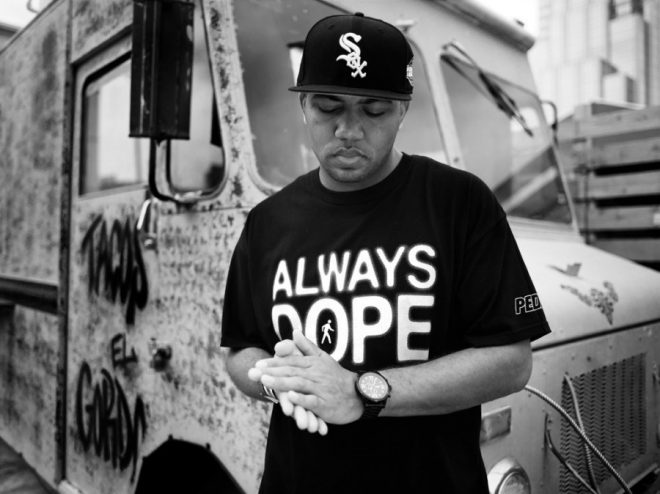
rubyhornet: To piggyback off that, did those multiple perspectives and adopting different characters make you re-examine issues in any way? Did it change your perspective on things?
Skyzoo: Definitely. When I was writing the album, I had to think of everything that was going on. There were situations that may have been quiet for a while, say, police brutality cases like Trayvon Martin and "Hoodie Season" and Alton Sterling, and all those guys that we lost. I had to revisit those moments throughout our history, whether they were a year ago, 2 years ago, whatever. I had to dig into certain memory banks and it was dope doing that because it continued to put all these things in front of my face. Going back, remembering this, remembering that. "Honor Amongst Thieves" is one of my favorite records on the album. Going back to my childhood and what it was like when my father and I went to the movies to see "Boyz In The Hood" and we related to that and the conversation we had after the movie went off is what I wrote about on the record. Those moments to me are priceless on the record.
rubyhornet: I wanted to ask you about the process of making it. It feels like you approached this as a sociologist. Did it ever feel like that during the process? If so, was there conscious effort of taking on that role?
Skyzoo: Absolutely. It's funny you mention sociology. That was my favorite course in college. When I was in college as an English Major, I had to fill up other credits. I took sociology, I took psychology. I didn't know what sociology really was as an 18 year-old college freshmen. But when I got to class and it was explained to me, I fell in love with it. I said, 'this is what my music has always been about.' And that was me at 18 years old. Nobody outside of my neighborhood knew me as an emcee or a rapper. That's what I had already been about. And I fell in love with it. When I went to sell my books back, I kept my sociology book. I fell in love with the idea of what sociology meant. You hit the nail on the head once again. I've always looked at as my music as a big ass sociology experiment.
rubyhornet: The press release mentioned this album in relation to The Salvation, are there parallels between those projects or a relationship besides the lack of guest features and attention to detail? Did you have any reflection on then to now?
Skyzoo: The Salvation is an album I love. It's my debut, my fans love it, the whole deal. The Salvation is a fantastic album and I think what's so dope about it and what people love about it is that it's a young perspective. I was so young when I made that album, maybe 24. I was so young when I made that album. This album is much more mature and grown, because I've grown up. It's been a long time, I'm now 35 years old. It's a more mature album as far as things I'm speaking on, my perspective, my outlook. It doesn't make one more right than the other, it just makes where my pen is coming from a different thing. I would say the only similar thing is the fact that there's no rap features. There was one signer on The Salvation, and there are about four or five on this. But there's no hip hop features. And same thing I said on The Salvation, If I could sing I would have had nobody on it. I can't sing, so I had to call some amazing people like Raheem Devaughn and Kay Kola, WordsNCurves, and JillsBlack.
Skyzoo also hits Chicago on April 8th. Grab Tickets here.
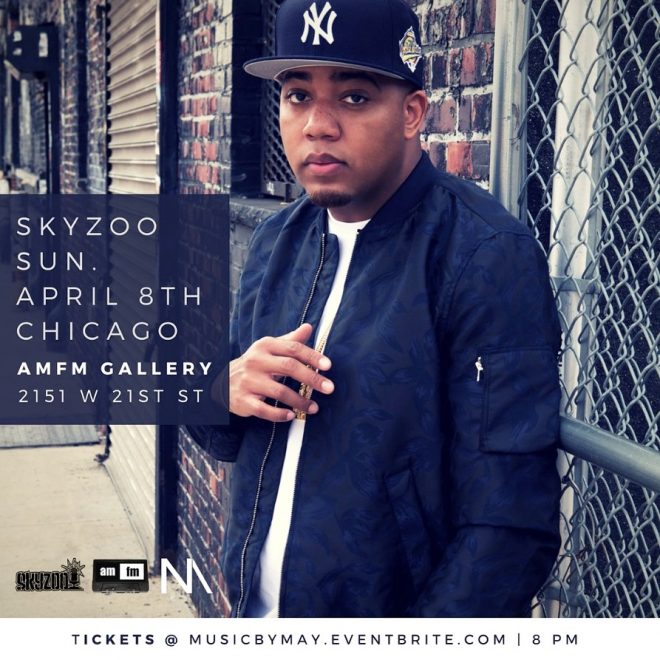
[RH Interview] Trackstar The DJ: Rap Fan Eternal
It's something many aspire to, but few actually touch. Young athletes throwing imaginary passes to Jerry Rice in their backyard, striking out Albert Pujols, or hitting that game winning shot over Michael Jordan in an empty gym. It's why Vic Mensa signing to Jay Z is extra special, why Chance working so closely with Kanye West is more than just a regular collaboration. Meeting your heroes is rare enough, being able to work with them everyday and travel the globe is like finding a golden ticket to Willy Wonka's Chocolate Factory.
Trackstar must have opened up a shit load of candy bars because for him, it is life. Trackstar was born in Madison, Wisconsin and moved to St. Louis to attend Washington University. He worked at the school's radio station (KWUR), started DJing, and stuck around for a decade pushing the hip hop scene through $1 mixtapes and parties.
As the story goes - in condensed form - Trackstar was a huge Killer Mike fan, made a mixtape of his favorite Killer Mike tracks, gave said mixtape to Killer Mike in person during A3C in Atlanta, and then was immediately rewarded by being offered the opportunity to DJ for Mike at a showcase opening for Rakim. He did that gig, more gigs, and became Mike's permanent DJ. When Run The Jewels was formed, he took that DJ gig too and hasn't let up since.
The specialness isn't lost on Trackstar. In fact, he gives a wink to his fan-turned-contemporary status on the daily with his growing clothing-brand, Rap Fan.
Fresh off a non-stop year of touring with RTJ, Trackstar talked to me about joining the band, his first pair of turntables, and what he's learned from Killer Mike and El-P.
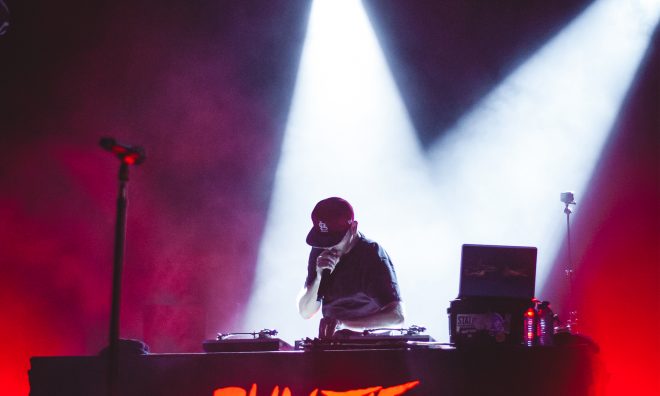
rubyhornet: Do you remember the thing that made you go, “I want to be a DJ” and cop that first pair of turntables?
Trackstar: I bought my first turntable before I really started DJing, because I was an obsessive fan who got into buying records before I starting spinning. When I first walked into my college radio station, KWUR, and saw the wall of hip hop records I needed to have access to them immediately, so I got a radio show. I only started DJing so I could listen to those thousands of records, lol. After that I got a mixer and second turntable.
rubyhornet: In your opinion, what does it mean to be a DJ? Has your insight changed as you’ve grown?
Trackstar: For me, it’s always been about the love of the music over everything else, having a responsibility to filter through all the music out there, and select what’s the right thing to play at a certain time. I’ve definitely learned a ton, and my perspective has broadened in a lot of ways. But at the end of the day, I just hope that the DJ is always one of the biggest music fans in the room, and that passion is what informs why they do what they do.
rubyhornet: You have been DJing for Run The Jewels since the beginning of the group. I kind of want to know if you were “part of the band” from the start, or if there was a moment when you went from being the RTJ DJ to the 3rd member of the band?
Trackstar: By the time RTJ1 came out, I’d been Mike’s DJ for a couple years, and we had already been on the road with El once on the Into the Wild Tour with Despot and eXquire, so we were all already tight. It was a pretty easy transition into the RTJ unit, and I’ve always felt like part of the band. It’s a funny dynamic because I am the unofficial third member, and I’ve done every RTJ show that’s ever happened (and hopefully ever will), but technically RTJ is Jaime and Mike. Which is pretty much how it should be—no matter what I may mean to the group and the live show, at the end of the day Run the Jewels is the manifestation of the amazing friendship between those two amazing dudes.
rubyhornet: The group rose to become one of the most important groups in music over the last few years, equally for the music as well as the messages outside the music. Killer Mike especially was a sought after voice during the election season. What insight have you gained about the social responsibility of artists through your friendship and working relationship with RTJ? Why do you think Mike and El-P hold that deeply, whereas not all artists really pick up that torch?
Trackstar: The thing about those guys and their social messaging is that it’s genuine, and that’s clear from how they express it. They aren’t new to thinking about the way the world works and expressing their viewpoints—they’ve both been doing it their whole lives, each in their own ways, which is true to who they are, and that comes across when they speak on the issues. At the same time, they don’t paint themselves into a corner where that’s their only angle, or where they HAVE to speak or take a position on anything. If you really look at the lyrics, for the most part they really aren’t political—the social commentary gets more press, but RTJ is at least 57% dick jokes.
rubyhornet: You worked with Killer Mike for years prior to Run The Jewels and I know he was one of your favorite rappers. You made a mixtape of all Killer Mike cuts, which kind of sparked your relationship. What was it initially about his music that struck you so much?
Trackstar: I used to make T-shirts that said “Hip Hop Needs Balance”, and that really describes what I look for in an MC. In Mike I found someone who was smart and had shit to say but didn’t fit into the “conscious” box, and was aggressive and had street cred but didn’t paint himself into a corner as a gangster rapper. I’d heard Monster when it dropped, but didn’t give it the attention it deserved. But from the first time I heard “That’s Life”, it was clear he was instantly one of my favorite MCs.
rubyhornet: Coming up as a DJ, was it in your plans to be a DJ for a Hip Hop group? Was this always something you wanted to do?
Trackstar: Really from the start for me, it was about wanting to help dope music get heard, from bothering my friends to listen to whatever new artist I was hearing, to having an underground hip hop radio show, to making mixtapes showcasing dozens of local artists who I thought deserved bigger audiences. So in a way it makes sense that I’d end up being part of the support system for two of my favorite artists, but honestly I didn’t have any grand ambitions of being a part of anything on this level. I never really thought past being a part of the local scene in St Louis and helping my crew get the love it deserved.
rubyhornet: Aside from being in Run The Jewels, you have your line Rap Fan. What’s it like to essentially run a business from a tour bus?
Trackstar: It can get stressful keeping track of stock and all that but it’s great—RTJ’s merch guy Jordan helps me out a lot and it’s just really dope that people like the stuff I put out there enough to buy it.
rubyhornet: I see the line continue to grow and pop-up in new places, new products, and new fans. From your perspective, why do you think so many people are connecting with it? It seems like there is a "beauty in simplicity" type of thing happening.
Trackstar: Yeah it’s really a simplicity thing I think, which is what I was going for—I wanted to make some merch but didn’t want to make it all about myself, and wanted it to be something that was timeless and would be something I’d still relate to (and not be ashamed of) in five, ten years…nothing had been more consistently central to my life than my status as a fan of hip hop, so Rap Fan just made sense. Fortunately a lot of people seem to relate, which has been really gratifying to see.
rubyhornet: You do a lot of the cuts and scratches on RTJ records, who are some of the turn-tablists you look up to and have studied?
Trackstar: Honestly I’ve never been focused on turntablism. Scratching was never my main thing, but I’m doing my best to do a respectable job, especially since so many of the kids seeing our shows have hardly ever seen a rap group with an actual DJ who scratches! Shadow, Z-Trip and Q-Bert all have joined us onstage, which is insane because they’ve all been influences since before I even started DJing…those guys, Cut Chemist, the Beat Junkies and a thousand people I’m leaving out were huge for me. But really my biggest influences were all St. Louis DJ's that I watched and studied every week— Charlie Chan, Mike 2600, Needles, Da Fly D-Ex, K9, Crucial…I know I’m leaving folks out that I love dearly, but I gotta stop somewhere. There’s so much DJ talent in St Louis that folks don’t know about.
rubyhornet: What’s always been interesting to me about RTJ is that both Mike and El-P had decade plus careers before the group, and in some ways, were written off as underground rappers. So to see the success now has got to be gratifying on many levels. The life of a DJ is also a battle of persistence. Where were you in your career before this, had you ever thought of changing things up and doing something else?
Trackstar: When I started working with Mike, I had never considered giving up on my DJ career, but was definitely getting close to having to do some serious examination of my five-year plan. I’ve always been all over the place with a lot of endeavors going on—mixtapes, clubs, working with artists, radio, education, writing—so as working with Mike started taking more time I just scaled back a bit on all the other stuff—everything progressed really naturally and gradually. One of the best parts about the way this success has come is the timing—we’re all experienced enough to not mishandle the amazing opportunities in front of us. We’ve already made and seen so many of the mistakes and can avoid those pitfalls since we’re a little older and wiser.
rubyhornet: Lastly, I just saw that you have a video mega-mix getting ready to drop. When is that coming, any info you want to share about the making of this project. I can’t really think of another project like this one in which the touring DJ records every show and then makes a live-video mixtape.
Trackstar: Man I’m so excited about this thing. So I’ve recorded every show for the last couple of years from multiple angles with my trusty GoPros—it’s a lot of work but like I said, I’m always doing too much. Around when RTJ3 came out, I made a megamix of RTJ tracks from all three albums, playing acapellas over instrumentals from other songs, doing little DJ tricks and such. We were trying to figure how to present the megamix when I had the idea to make a DJ-tour-movie-mega-visual-mixtape…one of my best friends (who also did my Trackstar logo) is an incredible director, so I worked with his company Filmograph to put this thing together, and it is awesome. We have such a good time onstage and it comes through in the footage. We just dropped the second segment, and I can’t wait to get the whole thing out there to the people.

